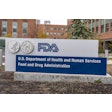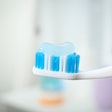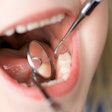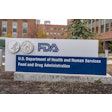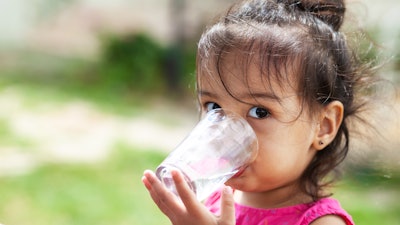
Children exposed to public fluoridated water between the ages of 0 and 5 may experience less economic independence, physical ability, and health as adults. The study was published on October 18 in the Journal of Health Economics.
Also, these children were less likely to graduate high school or serve in the military, author Adam Roberts of the U.S. Office of the Comptroller of the Currency in Washington, DC, wrote.
"The observed negative impacts of fluoride, combined with widespread access to the enamel-strengthening benefits of fluoride through toothpaste and dental treatments, provide a strong argument for ending the practice of water fluoridation and lowering the maximum levels of fluoride allowed by safe drinking water standards," Roberts wrote (J Health Econ, October 18, 2024, 102934).
More than 70% of public drinking water in the U.S. is fluoridated. Despite the U.S. Centers for Disease Control and Prevention naming water fluoridation one of the greatest public health achievements of the 20th century, the practice has many critics, specifically for its potential negative health risks.
This month, a review published in the Cochrane Database of Systematic Reviews revealed that drinking fluoridated water may not be so important now that people in the U.S. use toothpaste and mouthwashes that contain cavity-fighting fluoride.
The October review came two weeks after a U.S. judge in California issued a milestone decision determining that adding fluoride to public drinking water to help prevent tooth decay is risky to individuals, including children who may face lowered IQs, and therefore requires government intervention.
Additionally, the judge ordered the U.S. Environmental Protection Agency (EPA) to take regulatory action to address these risks. The EPA must determine the potential harm of fluoride in drinking water and determine how to respond under its amended Toxic Substances Control Act.
To understand how public water fluoridation may affect economic self-sufficiency, U.S. Census data linked to childhood fluoride exposure were used. This data include those who responded to the long-form 2000 decennial census and American Community Survey respondents from 2001 to 2016.
Children up to age 5 exposed to community water fluoridation fared worse as adults on indices of economic self-sufficiency (-1.9% of a standard deviation [SD]) and physical ability and health (-1.2% of a SD), Roberts wrote. Also, they were dramatically less likely to graduate high school (-1.5 percentage points) or serve in the military (1 percentage point), according to the study.
If community water fluoridation continues, more research is needed to determine the optimal level of fluoride that will benefit dental health without causing negative effects on health, cognitive ability, and labor market success, he wrote.
"These results show that, even at levels previously thought to be safe, the net effect of fluoride is negative," Roberts wrote.










